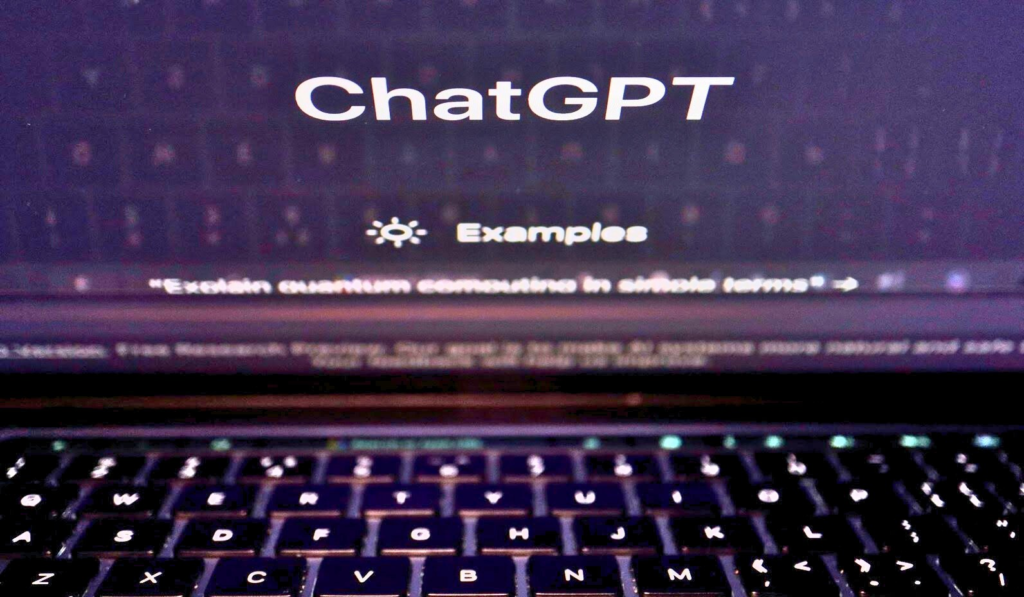
Impact of generative AI in writing for almost thirty years, I’ve had the honor of showing media keeping in touch with ages of undergrad and graduate understudies at Boston College’s School of Correspondence, helping them many weeks to consistently obtain the abilities they need to leave on effective vocations. In any case, two years after the appearance and more extensive utilization of generative man-made intelligence, obviously, at each degree of schooling, these apparatuses address completely an existential danger to the composing homeroom — undermining the very way we plan, create, and express our knowledge.
Despite the fact that I shouldn’t for a second need to practice every one of the numerous measurements depicting the conspicuous downfall of composing and education in our general public, the enticement is excessively perfect. The previous fall, Joseph Pisani terribly noted in the Money Road Diary, “the typical score on the Demonstration dropped to another 30-year low, showing less secondary school seniors are prepared for school.” That shocking decay lines up with other exploration showing the quantity of youngsters who read for joy dropping consistently throughout recent years, while the quantity of teenagers who seldom or never read for the sake of entertainment moved from 8 to 29 percent.
Since composing teachers can affirm that the most ideal way to master composing is to peruse ravenously, obviously we educators as of now face a lofty trip, rivaling interruptions going from TikTok and Snapchat to Netflix and the most recent cell phone games. We as of now have an age that denies or can’t peruse. Do we currently need them unfit to compose, also?
Ask for all intents and purposes any school composing educator today and you’ll get some variety of issues about understudy execution: a strange reluctance to peruse (either obligatorily or willfully), a powerlessness to appropriately make sentences that transcend the most common of designs, (best case scenario, or a devastating overreliance on composition and syntax instruments whose scope just increments. Those concerns are presently dramatically amplified.
With the appearance of gen simulated intelligence in late 2022, my partners and I have been confronting a game-changing emphasis point: the rising powerlessness to precisely evaluate a singular understudy’s composing ability — their capacity to make, create, and offer unique viewpoints in clear, convincing, crowd driven ways. Indeed, even notwithstanding clear strategies restricting the utilization of gen computer based intelligence in our classes, we presently face an attack of prefab expositions boldly produced in seconds by time-squeezed, easy route looking for understudies anxious to get their tickets punched prior to dropping down the way to their certifications.
One variable that is likewise forming this dynamic: the increasing expense of training. With BU’s rundown cost for a very long time of educational cost, room, load up, and expenses besting $360,000, there are critical compels on understudies to seek after seasonal work, entry level positions, and other tedious roads to boost their profits on that gigantic venture. Gen man-made intelligence is one exceptionally enticing method for turning out to be additional time-effective.
My partners and I have been hooking — to a great extent fruitlessly — with each part of this danger: counteraction, recognition, and remediation. On many times lately, individual teachers have pulled me to the side to stealthily let me know they’re applying their own form of Equity Potter Stewart’s renowned saying as they read a large number of tasks: “I will be unable to demonstrate it , yet I know it when I see it.”
I personally have fostered the “besides rule.” Any understudy accommodation that breezily drops in “also,” a word that one simply sees with no recurrence in the Gen Z vocabulary, promptly justifies significantly more cautious examination. The issue, obviously, is indisputably demonstrating the utilization of gen simulated intelligence. All things considered, nobody needs to make unprovable (or misleading) incriminations. So we educators walk on, sustaining steadily developing suspicion about the provenance and credibility of what we’re perusing and stamping.
AI in writing : What’s the Mischief?

To be totally clear: I respect nobody in readily and earnestly specifying that, assuming it follows the normal reception bend (and assuming significant boundaries, for example, its apparently voracious power utilization are effectively tended to), appropriately applied generative simulated intelligence will be a greatly sure and groundbreaking power for good, both in scholarly world and in industry, matching any development of the beyond 100 years.
With additional preparation information and a declining dollar-per-derivation cost structure, mind flights will be a simple reference, and the “uncanny valley” of composing will blur. As of now, Open simulated intelligence has started to resolve the last option issue with an extraordinary “Simulated intelligence Humanizer” that will take standard ChatGPT yield and apply a more sensible, humanlike voice and tone. Obviously the nature of the devices, their result, and their relevance are going in just a single heading.
In that unique situation, a significant number of my good natured partners in different disciplines at BU have embraced a substantially more realistic way to deal with generative simulated intelligence. Many are analysts who show brain research, promoting, material science, regulation, and medication. “What’s the mischief? Everybody will utilize it,” they say, maybe naturally freed that the quality from the research papers they relegate and peruse will be significantly better.
Nonetheless, this “I invite our new masters” reasoning neglects the central inquiry of training: Would we say we are zeroing in solely on the actual result or on showing the course of dependably and reliably — and autonomously — making that result? Recorded as a hard copy classes, for example, the ones I lead at BU, the response is blindingly self-evident. We need to (and must) show understudies the most common way of composing, which,
in actuality, is the method involved with thinking (and afterward freshly and importantly articulating those contemplations). We should at the same time show each of the elements of composing: content, structure, mechanics, crowd, and voice. At the point when the understudy re-appropriates keeping in touch with a machine, the person is likewise rethinking the reasoning behind the composition. The understudy is zeroing in exclusively on the result, whose quality and legitimacy they never become prepared to assess.
What have we realized two years into this new worldview? We’ve discovered that it’s more fundamental than any time in recent memory to perceive — and distressingly not entirely obvious — that generative computer based intelligence doesn’t show understudies how to compose. It trains understudies to abstain from composing.
Consider the (as a matter of fact blemished) similarity of the mini-computer. In the a long time since Texas Instruments sent off the primary mass-market four-capability mini-computer, we’ve seen a wide and obvious decrease in numeracy across our general public. Number juggling abilities have consistently dissolved to where supper checks are introduced (or, progressively, we get the feared tablet flip) that “supportively” incorporate a scope of precalculated tips to save every one of us from the weights of straightforward duplication.
Nobody would sensibly battle that giving a second-grader a number cruncher and telling her the best way to press a couple of buttons implies that she has learned long division. Likewise, we can’t show any understudy how to compose basically by guiding her to begin a ChatGPT meeting. What abilities are created? What unique considerations might potentially arise?
A re-visitation of pen and paper — or the typewriter — and live composing works outIn any case, what’s an overwhelmed teacher to do while confronting 20 beginner essayists simply beginning their school professions? I’m progressively persuaded what’s in store lies before. Actually, while we’re showing composing essentials to understudies, we should take out the utilization of PCs and their orderly enticements. I without a doubt, plan to lead more in-class composing studios — utilizing pen and paper — so I can all the more really draw in understudies’ capacities, sure that I’m taking a gander at work that is exclusively their own. I even imagine a “composing lab” with typewriters where understudies give time to putting out printed version like it’s 1979.
I’m a significant defender of the utilization of generative simulated intelligence. I’ve seen its power and potential, which, in the right settings, far offset the risks. In any case, in the walled nursery of showing an understudy how to compose successfully, generative man-made intelligence plays definitely no part and can prompt a hindered age unfit to verbalize the considerations in their minds.